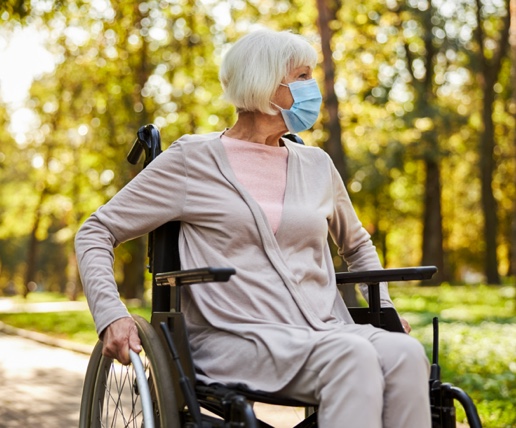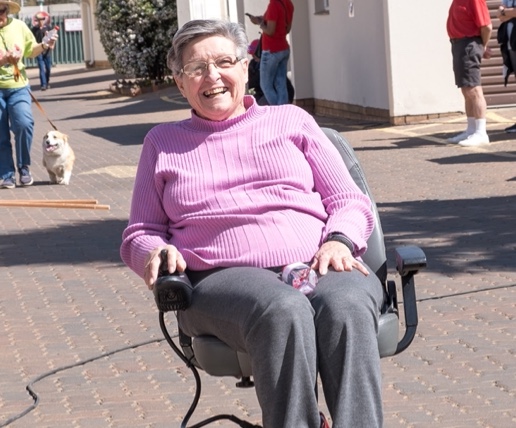
Seniors over the age of 65 are at high risk of experiencing Vitamin D deficiency. This can have a number of detrimental effects on their health. The good news is that there are easy ways to boost vitamin intake and improve these health risks as a result. Let’s take a look at the most important facts about Vitamin D deficiency and what you can do about it.



1. Vitamin D is essential to healthy body functioning
Vitamin D is an essential nutrient that plays a very important role in the healthy functioning of the body. By regulating calcium absorption, Vitamin D helps keep bones, muscles and teeth strong and healthy. It’s also responsible for regulating the release of dopamine and serotonin, which affect mood. In addition, Vitamin D helps control appetite and the levels of leptin in the body, thereby playing a role in weight management as well.
Vitamin D is an essential nutrient that plays a very important role in the healthy functioning of the body. By regulating calcium absorption, Vitamin D helps keep bones, muscles and teeth strong and healthy. It’s also responsible for regulating the release of dopamine and serotonin, which affect mood. In addition, Vitamin D helps control appetite and the levels of leptin in the body, thereby playing a role in weight management as well.
2. Vitamin D deficiency has a number of subtle symptoms
The symptoms of Vitamin D deficiency are not always easy to detect, and can sometimes be misdiagnosed as other issues. Low Vitamin D levels in seniors has been strongly linked to muscle weakness and bone frailty, which makes it difficult for seniors to walk, climb stairs or do other physical tasks. It also increases the risk of serious injury due to falls. Studies have shown that low Vitamin D levels could also be linked to mental health disorders such as cognitive decline, depression, Alzheimer’s disease and other forms of dementia. Weight gain, joint stiffness and constant fatigue are other common symptoms. Lastly, low Vitamin D levels may contribute to the development of inflammatory bowel disease and worsen the body’s ability to absorb nutrients.
The symptoms of Vitamin D deficiency are not always easy to detect, and can sometimes be misdiagnosed as other issues. Low Vitamin D levels in seniors has been strongly linked to muscle weakness and bone frailty, which makes it difficult for seniors to walk, climb stairs or do other physical tasks. It also increases the risk of serious injury due to falls. Studies have shown that low Vitamin D levels could also be linked to mental health disorders such as cognitive decline, depression, Alzheimer’s disease and other forms of dementia. Weight gain, joint stiffness and constant fatigue are other common symptoms. Lastly, low Vitamin D levels may contribute to the development of inflammatory bowel disease and worsen the body’s ability to absorb nutrients.
3. The main causes of Vitamin D deficiency in seniors
A big source of Vitamin D is sunlight. However, as people age, their skin becomes thinner and their ability to convert cholesterol into vitamin D from sunlight decreases. Add to this the fact that many older people tend to spend more time at home and indoors, thereby limiting their exposure to sunlight. Furthermore, before Vitamin D can be used in the body, it needs to be activated in the kidneys. And since kidney function often declines with age, this further reduces the availability of Vitamin D in the body. Lastly, seniors tend to suffer from a lack of appetite, which may reduce their intake of Vitamin D-rich foods.
A big source of Vitamin D is sunlight. However, as people age, their skin becomes thinner and their ability to convert cholesterol into vitamin D from sunlight decreases. Add to this the fact that many older people tend to spend more time at home and indoors, thereby limiting their exposure to sunlight. Furthermore, before Vitamin D can be used in the body, it needs to be activated in the kidneys. And since kidney function often declines with age, this further reduces the availability of Vitamin D in the body. Lastly, seniors tend to suffer from a lack of appetite, which may reduce their intake of Vitamin D-rich foods.
4. Some drugs may negatively affect Vitamin D levels
There are a few medications that may interfere with the absorption of Vitamin D from supplements. These include steroids, some weight-loss drugs, cholesterol-lowering drugs and drugs to control seizures. When taking these drugs, seniors should be aware of the risks, and look at alternative methods for boosting their Vitamin D intake.
There are a few medications that may interfere with the absorption of Vitamin D from supplements. These include steroids, some weight-loss drugs, cholesterol-lowering drugs and drugs to control seizures. When taking these drugs, seniors should be aware of the risks, and look at alternative methods for boosting their Vitamin D intake.
5. The best ways to boost Vitamin D levels in seniors
For most seniors, exposure to sunlight is the best source of vitamin D. Researchers suggest it takes up to 30 minutes of sun exposure twice a week to make enough Vitamin D from sunlight. When it comes to food, there are not many that contain Vitamin D naturally. Some foods that do have naturally occurring Vitamin D are cod liver oil, salmon, mackerel, tuna, beef liver, cheese and egg yolks. Some foods are also specially fortified with Vitamin D, these usually include bread, milk and fruit juices. Oral Vitamin D supplements are also an effective way to boost Vitamin D levels.
For most seniors, exposure to sunlight is the best source of vitamin D. Researchers suggest it takes up to 30 minutes of sun exposure twice a week to make enough Vitamin D from sunlight. When it comes to food, there are not many that contain Vitamin D naturally. Some foods that do have naturally occurring Vitamin D are cod liver oil, salmon, mackerel, tuna, beef liver, cheese and egg yolks. Some foods are also specially fortified with Vitamin D, these usually include bread, milk and fruit juices. Oral Vitamin D supplements are also an effective way to boost Vitamin D levels.
At Totalcare, we offer eight all-inclusive retirement villages complete with everything residents need for a healthy lifestyle. Our dedicated dieticians plan fresh seasonal menus featuring nutritionally balanced meals made according to the specific needs of seniors. And our landscaped gardens provide ample opportunity for outdoor activities in the fresh air and sunlight. Residents also have access to a doctor, occupational therapist and support services to administer any medical care required.
For more information, click here.
For more information, click here.
